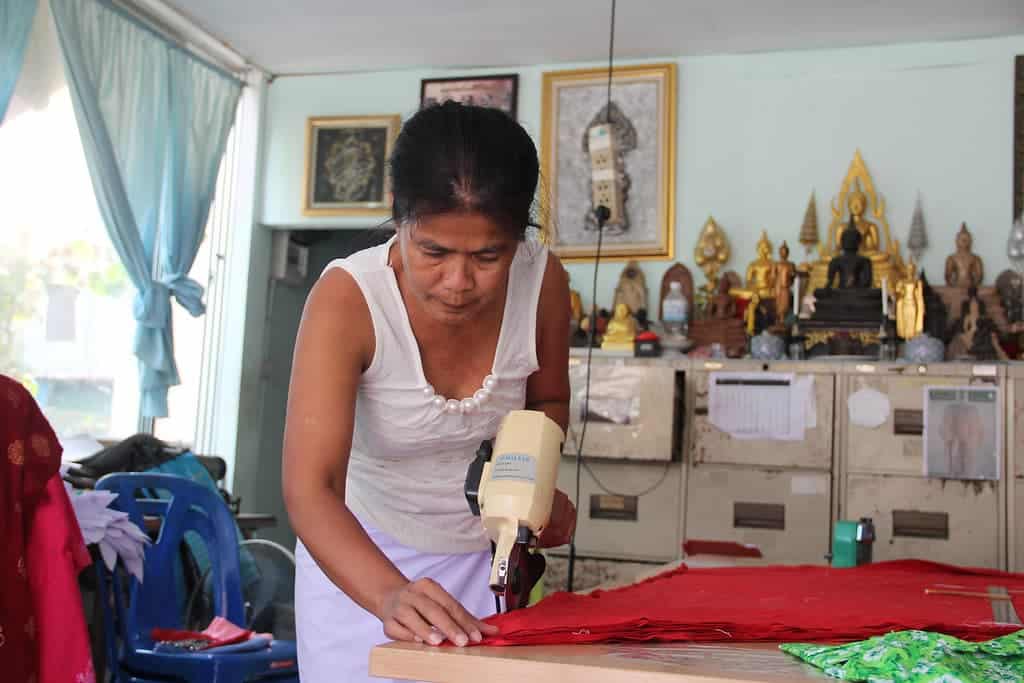WIEGO, Asia Floor Wage Alliance (AFWA), HomeNet South Asia (HNSA) and HomeNet South East Asia (HNSEA) demand that brands extend a one-time Supply-chain Relief Contribution (SRC) to all garment workers in their supply chains during the COVID-19 crisis.
In a July 20 statement, the organizations jointly demand that global brands in the fashion industry make an SRC to all garment workers during the crisis. Workers include time-rated, piece-rated, subcontracted and home workers.
The crisis has revealed the scale of informality and subcontracting, including to home workers, that sustain global garment supply chains. Home workers have not received payments for work already performed prior to lockdown and, as the most vulnerable workers in the chain, are facing extreme hardship.
An estimated 60 million workers worldwide, based both at home and in factories, make garments for local and international apparel companies. They are bearing the brunt of imposed lockdowns to stem the spread of COVID-19.
In April 2020, AFWA made a demand for an urgent and initial response by fashion brands to the COVID-19 humanitarian crisis, through a one-time brand SRC for supply chain workers, most of whom are women. An SRC should be a quantified amount: an additional 2% of total sourcing by the particular brand in the preceding 12 months from the respective factory. This SRC supplements any shortfall in the estimated 60 days of wages lost from the beginning of the COVID-19 crisis until 30 June 2020. The SRC is based on the total labour cost of garment production, including the labour costs of aspects of production that are subcontracted to home workers.
The OECD Due Diligence Guidance for Responsible Supply Chains in the Garment and Footwear Sector recognizes that homeworkers are legitimate workers in supply chains and that they should receive equal treatment to factory workers: “Homeworkers should be viewed as an intrinsic part of the workforce entitled to receive equal treatment and therefore should be formalised in order to achieve good terms and conditions of employment.” In Asia more than half of all factories subcontract aspects of production to smaller workshops and to homeworkers. In India alone it is estimated that five-million homeworkers are engaged in production for garment and textile supply chains. A recent survey of 340 garment factories in Delhi and Bengaluru showed that 58 per cent of surveyed factories outsource to homeworkers.
The organizations jointly call on brands to address the extreme vulnerability of such workers at this time of acute humanitarian crisis and to pay the SRC. An SRC can be extended to subcontracted workers, including to home workers, by calculating the piece rate that was paid to the particular home workers in the two months preceding lockdown.
WIEGO, HNSA and HNSEA endorse the SRC demand and will undertake to identify the homeworkers within particular brands’ supply chains and to build claims for homeworkers to SRC. The SRC should be paid directly to homeworkers and not through suppliers.
The SRC is a relief contribution and in no way substitutes brands’ existing contractual commitment or obligations to pay severance contributions in cases of downsizing, retrenchment and closure.
AFWA, WIEGO, HNSA and HNSEA believe that any agreement with a brand and/or retailers must be binding.
We are in solidarity with global labour rights and human rights organizations and networks who, together with garment workers, are campaigning and advocating for brands’ purchasing practices to be transformed to ensure decent work for all workers in their supply chains.
